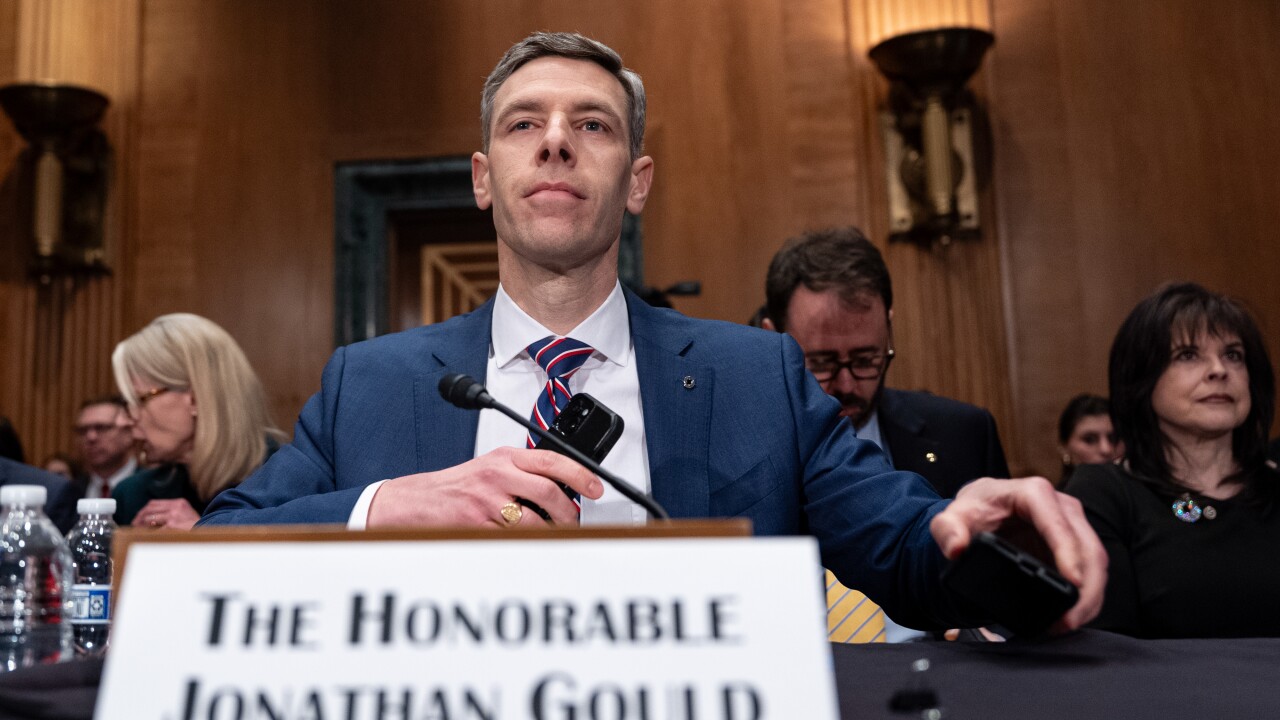Industry trade groups are challenging the National Credit Union Administration over its proposed budget.
The NCUA board on Wednesday held a public briefing to discuss the proposed budget. During that meeting, the groups expressed concerns that the 2019-2020 budget does not adequately address how the agency will eventually substantively cut its expenses. The agency is already in the midst of a significant reorganization, including shrinking office space and reducing employees.
NCUA insists its current proposal is a reduction once inflation is taken into account. The proposed budget, which was released in late September
If approved, this would be yet another budget increase for the regulator even as the number of institutions it oversees declines, argued Jeanne Kucey, CEO of JetStream Federal Credit Union in Miami Lakes, Fla. Credit unions funding the agency could be using that money to serve members, she added.

“The credit union industry is well-capitalized and strong, meaning credit unions can continue to provide members the highest-quality products and services in the market, but credit unions are constantly under attack by the very institutions that precipitated the worst financial crisis since the Great Depression,” said Kucey, testifying on behalf of the National Association of Federally-Insured Credit Unions. “NCUA must evaluate all potential measures for credit unions to remain competitive, because short of the passage of a modern Glass-Steagall Act, the largest banks will continue to look for ways to stunt the growth of the credit union industry.”
NAFCU last month released a white paper
Kucey, who is also the current chair of NAFCU, praised NCUA’s moves in recent years to make the budget process more transparent, but urged "an ongoing, agency-wide commitment to eliminating duplicity and creating an efficient budget that can be maintained long-term without relying on annual increases."
Kucey testified alongside Shelton Roulhac, vice president of communications at the National Association of State Credit Union Supervisors, and Mike Schenk, chief economist at the Credit Union National Association.
Kucey also suggested that granting NCUA oversight of third-party vendors would make it more difficult to keep future budget increases to a minimum. NCUA Chairman Mark McWatters
She asked the panel – which included board member Rick Metsger and Chief Financial Officer Rendell Jones along with McWatters – what impact third-party vendor authority would have on future budget projections.
“NAFCU urges NCUA to moderate supervision based on objective indicators as opposed to the specter of cybersecurity risks or future competition from fintech companies,” she said.
McWatters countered by noting that while some large credit unions can develop new technologies in-house, smaller shops must rely on credit union service organizations and other outside vendors. Not examining vendors for cybersecurity risks “causes me some pause,” McWatters said.
“The cybersecurity threats to the credit union community have enhanced greatly over my four years here and I can’t help but think they’re also going to increase in the future,” he added.
Follow banks' lead on exams?
Kucey, along with CUNA’s Schenk, also urged NCUA to follow the lead of other banking regulators and extend the examination cycle for well-run, low-risk credit unions. The regulatory relief bill President Donald Trump signed into law earlier this year raised the threshold for an 18-month exam cycle for banks from under $1 billion in assets to $3 billion.
“Congress has already delegated authority to NCUA to set the frequency of examinations for credit unions,” Schenk said. “Given that Congress has now codified an extended examination cycle for community banking institutions — the type of insured bank depository institution most closely aligned with the credit union industry — NCUA would be well within its legal purview to exercise similar discretion for smaller credit unions.”
In follow-up remarks, McWatters said the agency is currently considering that proposal but has not yet come up with a final decision. One issue is that the Federal Deposit Insurance Corp. has a larger insurance pool than NCUA, he said. When a larger credit union fails, it causes a proportionally bigger loss to the National Credit Union Share Insurance Fund than the FDIC would experience in a similar scenario.
NCUA made news last year when it raised the agency’s normal operating level to 1.39 percent. All three panelists urged NCUA to find ways to restore it to the previous mark of 1.30 percent.
The regulator will continue to accept comments on its budget until Oct. 26 and is scheduled to vote on the matter during its open board meeting on Nov. 15.





